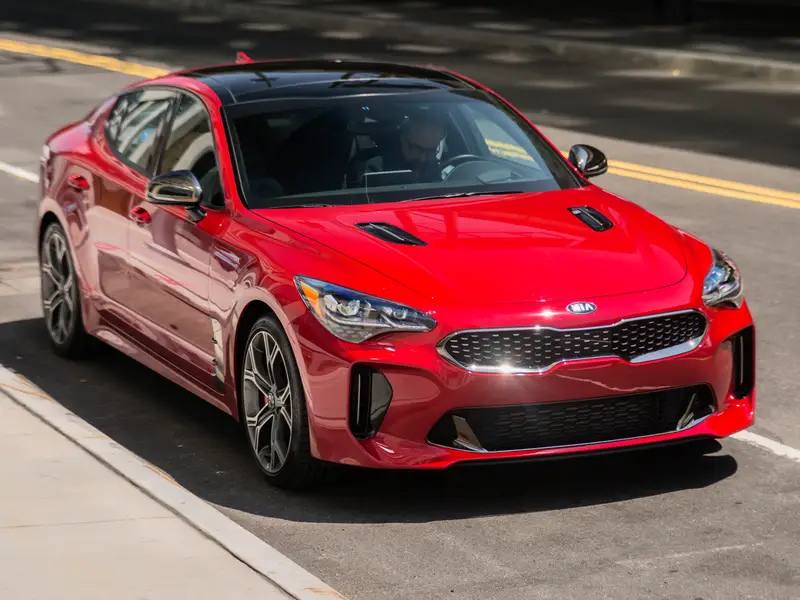
Top Ten Things – Top 10 car brands dominating the Indonesian market in 2025 reflect shifting consumer demand, evolving technology, and increased interest in electric vehicles. Many Indonesians now prioritize fuel efficiency, safety features, and digital integration when selecting a car. Brands that consistently deliver reliable after-sales service and affordable pricing continue to lead in sales. Additionally, urban growth and infrastructure improvements influence how buyers choose between sedans, MPVs, and SUVs. With a growing middle class and rising environmental awareness, demand for hybrid and electric models has surged significantly. Several automakers have adjusted their strategies, offering models designed specifically for local preferences. As competition intensifies, manufacturers rely on innovation, marketing, and local partnerships to maintain their market share and brand loyalty.
“Read More: Food Tourism Thailand: Taste of Culinary Adventure Bangkok”
Toyota continues to dominate Indonesia’s auto industry with a wide selection of models for various lifestyles and budgets. Their popular MPVs and fuel-efficient sedans have built a loyal customer base over the years. In 2025, Toyota enhances its offerings with updated hybrid vehicles and expanded safety features. Their strong dealer network and reliable after-sales support make ownership worry-free for many families. Moreover, Toyota invests in manufacturing partnerships that strengthen its position in the domestic market. As cities grow, their compact cars become more practical and desirable for urban drivers. Their ability to respond to trends while maintaining consistent service gives them a solid edge.
Honda maintains strong market traction by combining sporty styling with reliable engineering. Many younger consumers are drawn to their innovative designs and tech-forward features. Honda also keeps improving fuel efficiency without compromising driving experience. Their hybrid variants receive positive attention from eco-conscious buyers. In addition, Honda invests in digital platforms that streamline the buying and maintenance process. With models like the City and HR-V leading their segment, Honda appeals to professionals and families alike. Their commitment to safety and environmental responsibility boosts customer confidence even further.
Mitsubishi’s rise in Indonesia is largely due to its SUV success, especially the Pajero Sport and Xpander Cross. These vehicles meet the demand for comfort, power, and adaptability on varying road conditions. Their design strategy suits both city users and those in remote areas. The brand also focuses on commercial vehicle development to support small and medium businesses. With an emphasis on affordability and rugged performance, Mitsubishi expands its customer base beyond urban centers. This rural expansion strategy has allowed them to tap into previously underserved regions.
Suzuki positions itself as a smart choice for affordability and reliability. Their Ertiga and Carry lines remain favorites for personal and business use. In 2025, Suzuki introduces compact EV prototypes and emphasizes low maintenance costs. Their extensive service network appeals to cost-sensitive users who prioritize practicality. While they may not lead in luxury, they dominate value-based segments with consistency. Their marketing focuses on family and daily utility, which resonates with large portions of the Indonesian population.
Hyundai emerges as a tech-forward brand by bringing affordable EVs and digital connectivity to the Indonesian market. Their Ioniq and Creta models attract a younger demographic looking for futuristic features. They invest heavily in local charging infrastructure partnerships to support their EV roadmap. This forward-thinking approach earns praise from urban buyers and green technology advocates. Hyundai also introduces smart dashboard systems and remote diagnostics as standard features. Their digital focus makes them a favorite among tech-savvy professionals.
Wuling surprises the market by combining low pricing with high-end features in its vehicles. Their electric mini-cars, like the Air EV, become a popular option in major cities. They aggressively price their offerings to undercut competitors while maintaining quality. By assembling vehicles locally, Wuling qualifies for government incentives, further reducing purchase costs. Their simple, user-friendly design appeals to first-time buyers. Their sales model emphasizes transparency and digital convenience, which helps build consumer trust.
Nissan aims for a comeback in 2025 by emphasizing hybrid technology and ride comfort. Their Kicks e-Power model attracts drivers looking for efficient urban transport. Nissan also highlights driver-assist technologies and spacious interiors. Their strategy revolves around lifestyle branding, linking mobility to personal well-being. They rework their dealer approach by adding more customer touchpoints, especially in suburban areas. Although they face stiff competition, their renewed focus offers strong potential for growth.
Daihatsu secures market share by offering compact vehicles that are easy to drive and maintain. The Ayla and Sigra models remain top picks for city dwellers and new drivers. In 2025, they refresh their lineup with cleaner engines and modern interiors. Daihatsu’s long-standing reputation for durability keeps buyers loyal. Their ability to offer cost-effective models with practical features ensures continued demand. Their workshops provide fast service, which appeals to busy consumers with tight schedules.
DFSK expands its influence by focusing on cargo and fleet vehicles. Their reliable vans and pickups find buyers among small logistics companies and vendors. They keep prices low while enhancing load capacity and safety features. In addition to commercial products, DFSK tests compact electric cars in major urban zones. This dual-track strategy appeals to both enterprise and individual customers. Their promotional campaigns stress dependability and adaptability.
Chery makes a comeback with fresh styling and improved engine performance. Their Tiggo line introduces competitive options in the small SUV segment. They emphasize intelligent features like voice controls and integrated navigation systems. Their branding highlights innovation, youthful appeal, and affordability. They plan to open more showrooms across Java and Sumatra. By focusing on urban aesthetics and practical specs, Chery attracts style-conscious shoppers looking for something new and different.